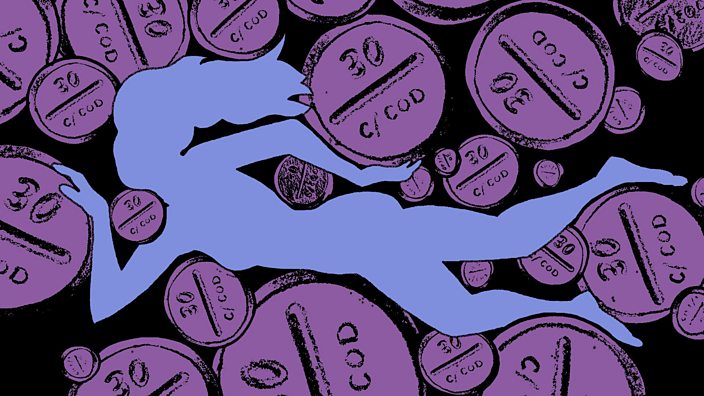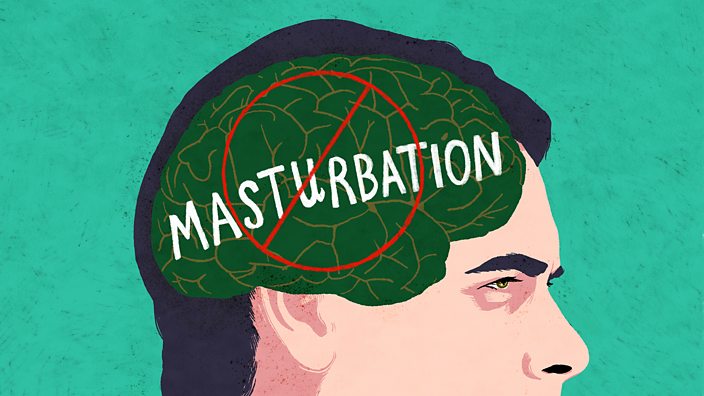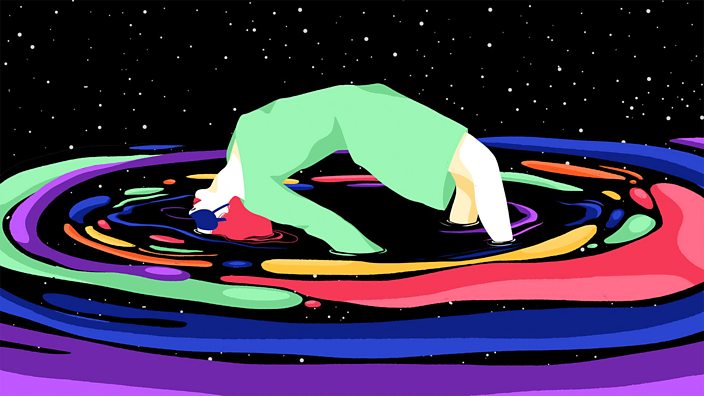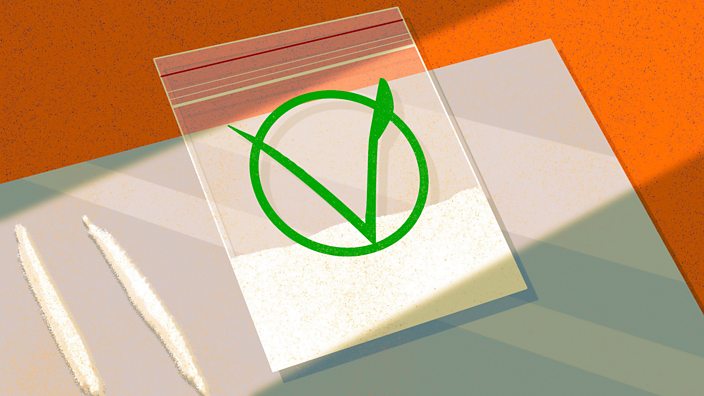 BBC Three
BBC ThreeIs coke vegan? And other urban drug myths busted
We ask experts to separate the fact from fiction
When it comes to drugs, there's an endless supply of myths out there - whether it’s a tale about the best way to take a particular drug, a justification for taking them (even though they’re actually illegal), or a remedy users swear can help combat the after-effects.
The problem is these theories can seem plausible when you hear them, particularly to drug users who really want to believe them. But, while the rumour-mill works its magic, deaths from some drugs in the UK are on the rise, with the latest government statistics showing that cocaine-related deaths in England and Wales rose to their highest level since comparable records began in 1993.
All of this has created a mood of urgency among campaigners who are calling for a fresh approach to drug policy in this country by treating drug use as a public health issue instead of a criminal matter. We decided to cut through the online rumours and Reddit threads to debunk a few of the most prevalent myths.
We spoke to two drug experts in our bid to discover the truth about after-party culture, otherwise known as the sesh. Henry Fisher is a senior chemist at The Loop, a harm-reduction charity that provides on-site drug testing services at UK festivals. Ian Hamilton is a former NHS mental health nurse turned academic, who specialises in researching the relationship between mental health and substance abuse.
Myth: You can't get addicted to MDMA
The way some people talk about MDMA (aka ecstasy) it can seem like a harmless good-time drug. But then there are also those wide-eyed types at parties who are chewing their faces off and chatting breeze. They always seem to have a stash of pills on them and look like they haven’t slept for weeks. That seems odd though, because you can't get addicted to this drug, right?
Truth: Unlike substances such as heroin, crack cocaine and alcohol, the research on whether MDMA is physically addictive is inconclusive. In rare cases, however, it's possible to get psychologically hooked on it.
"While there is no evidence MDMA is physically addictive, some people appear to develop a psychological dependency - in that they become preoccupied with using the drug," Ian says. He explains that experts don't know for sure if this is due to the chemical or just as a result of it being associated with having a good time dancing in clubs with mates.
But for anyone who's become dependent on MDMA, whether the cause of it is physical or psychological is irrelevant - they will still be suffering the damaging effects of an addiction on their health, work and personal life. Because going out and getting on it all the time makes it really hard to be your best self.
 BBC Three
BBC ThreeMyth: Coke is vegan
The Murphy's Law of after parties is that there will always be one person there who riles everyone else up. Take for example the guy who, in between hoovering up lines of cocaine, waxes lyrical about the dangers of plastic straws, while proudly proclaiming that his drug use is ethically ok because coke is plant-based, and, therefore vegan.
Truth: In recent years, rumours have spread like internet wildfire that cocaine was actually vegan. Technically speaking, it isn't an animal-based product as it is made from extracts from the coca plant. But the way it's produced is both bad for the environment and ethically questionable, which means it’s hardly going to offset the carbon footprint of those cheap budget airline flights you took this summer.
Coca is harvested in South America and its production contributes to deforestation, pollution of natural habitats, rare species extinction and human exploitation. Drug-related violence was blamed for a record 29,000 murders last year in Mexico and scientists have found that some European rivers (including the Thames in London and the Arno near Pisa in Italy) have such a high concentration of cocaine in them that eels are “getting high". Yes, you read that right.
"Environmental concerns and animal welfare worries are some of the core values that underpin people's reasons for being vegan," Henry says. "So in the broader sense, no it isn't vegan."
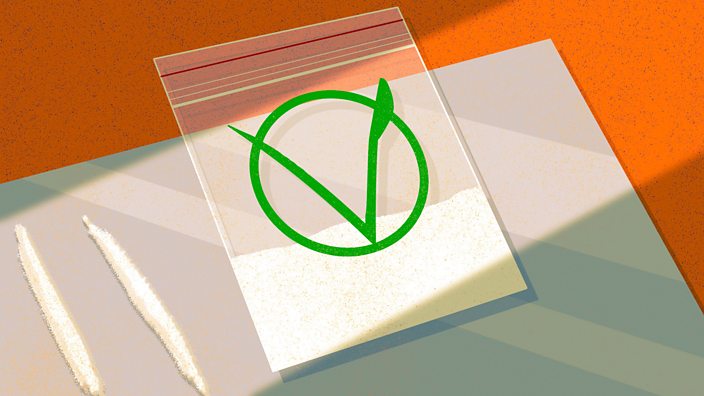 BBC Three
BBC ThreeMyth: Cannabis chills you out
Picture the scene - there’s a party going on in uni halls, people have plonked themselves down on tired university-issue mauve sofas. There is one, glassy-eyed student waving a joint in the air and mumbling something about how “weed chills you out, man”.
Truth: The truth is that that's just not the case for everyone. "Making generalisations about the effects of cannabis can be difficult and misleading," Henry says.
This month, cannabis-based medicinal products were made legally available on prescription in the UK, but the government is clear this is not a first step to the drug's legalisation. Henry says that “one of the most common health conditions that medical cannabis users all over the world say they use the drug for is anxiety". But he adds the evidence is still inconclusive.
As with any drug, the effects depend on the person's mood, emotional and physical state at the time of taking it. "For someone not used to cannabis, the effects can make them feel the opposite of relaxed," adds Henry.
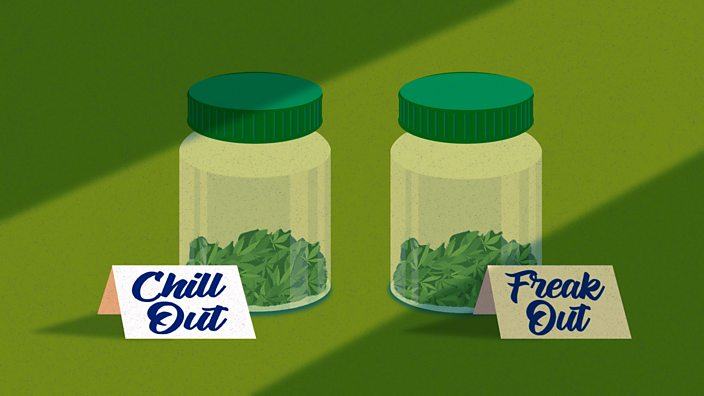 BBC Three
BBC ThreeMyth: Comedowns can be cured with home remedies
It’s Tuesday afternoon and people are still recovering from a heavy weekend. Google searches for “how to avoid a comedown” are spiking. There’s a long Reddit thread about whether the best remedy is nipping out to a health food shop to pick up supplements, or stockpiling Marmite.
Truth: A ‘comedown’ is how drug-takers describe the after-effects of the sesh on their bodies and brains. Some people swear by home remedies like eating Marmite (because it contains amino acids which help create the 'happy chemical' - a neurotransmitter called serotonin) while others advocate supplements with scientific-sounding names like 5htp (which is also supposed to help boost serotonin). Others claim all you need is a bunch of bananas.
"There's no way of avoiding a comedown entirely," Henry says. "There's very little research in existence that has been conducted to establish whether any of these remedies help," he explains.
While a big night out is guaranteed to leave you feeling rough, there are varying degrees. According to Henry, “the most effective way to reduce a comedown, besides not taking drugs at all, is to eat healthily, get plenty of sleep and stay hydrated".
Myth: Psychedelics are a form of therapy
In certain circles, house parties are turning into group therapy sessions. People eschew drinking and dancing to lie on their backs, stare at the ceiling and talk about attachment theory, while in the midst of an acid trip. This trippy form of self-care might not sound fun, in the traditional sense, but apparently it's helping them heal.
Truth: In the last few years, a number of studies have suggested that psychedelics could be used as treatment for mental health disorders like depression, addiction and post-traumatic stress disorder.
But while there is a renewed interest in the potential of drugs like LSD to treat psychological problems, not enough is yet known about how psychedelics affect the brain. "We don't know who would benefit and how much of the drug they need," Ian says.
So, while there is potentially some truth to this myth, experts definitely don’t advise self-medicating with these drugs.
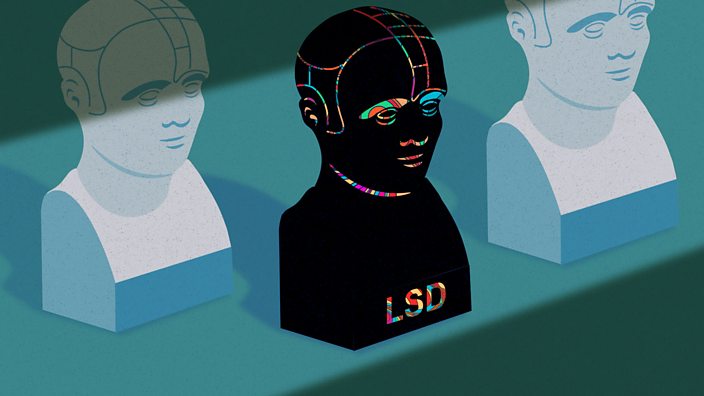 BBC Three
BBC ThreeMyth: A line of coke will sober you up
In certain partying circles, there's often someone stumbling around clutching a warm G&T in a plastic cup, bothering people for a line of coke. It doesn't matter if everyone else is definitely not on drugs, at some point they're going to tap countless people on the shoulder, send a cloud of booze breath their way and ask for a 'quick sharpener' to sober him up, before muttering something about how coke is 'raver's coffee'.
Truth: Nope! It’s misleading to think that drugs perform some kind of balancing act in our central nervous system. Our bodies are far more complicated than that. If someone loads up on cocaine and alcohol, then “they won't be sober, they will be both drunk and high," says Henry.
It might sound obvious but it’s an important distinction. Although alcohol can make someone feel slow and tired, and cocaine may make them feel more awake and buzzing, both substances act on the brain to cloud judgement. "This can be a dangerous mix when someone is out in a social situation. Thinking that cocaine will sober someone up can have the negative effect of letting them think they can drink even more," Henry says.
"Once the cocaine wears off, they can find themselves more drunk and vulnerable than they intended.”
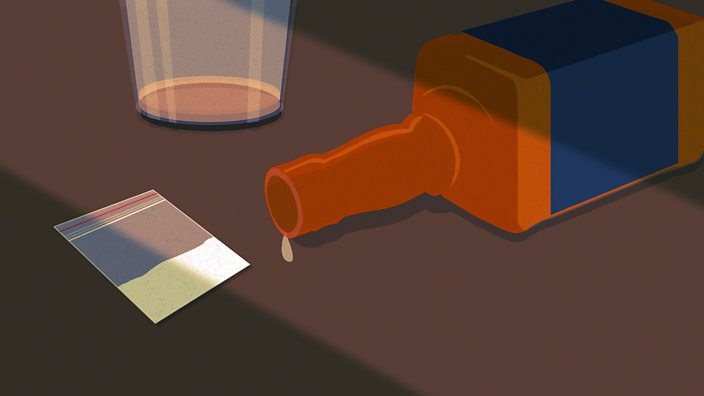 BBC Three
BBC ThreeMyth: Taking drugs is like swallowing truth serum
That Latin expression 'in vino veritas' literally means 'there's truth in wine'. In fact, the debate around whether booze makes people tell the truth dates back to the Roman times. People are more likely to be honest when they’re mashed… right?
Truth: It’s complicated! "Some drugs seem to make it harder for us to tell a lie," Ian says. When it comes to alcohol, for example, it depresses the area of the brain needed to make up a lie or hold back feelings. That’s why you may occasionally wake up regretting what came out of your mouth the night before.
This isn't exactly the case with other drugs, though. "With MDMA, the person becomes less aware of how far they have shifted from the truth," Ian explains. That’s where those over-the-top statements about just how much people really, really do love each other, come from.
That being said, initial research is emerging around the use of MDMA to treat PTSD because it's thought to lower inhibitions, making it easier for people to express their feelings in a therapy session.
Myth versus reality: the verdict
So, there you have it. The seven sesh urban myths we put to our experts are mainly just that: drug takers’ folklore. While there is some truth in elements of them - we don’t know for sure how addictive MDMA is for instance - others have got the facts totally inside out, and coke is most definitely not ethical in any way, shape or form.
You find support on drink and drug use via these BBC Advice pages.
This article was originally published on 8 November 2018


